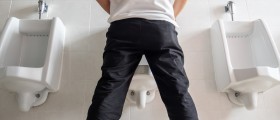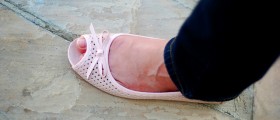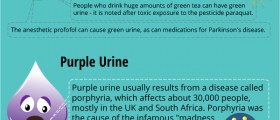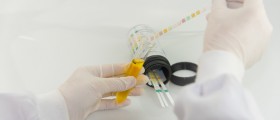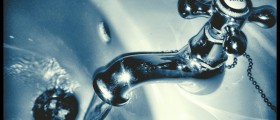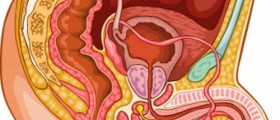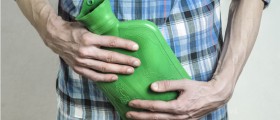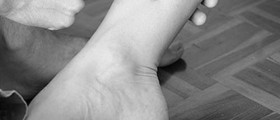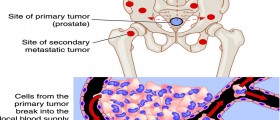I know its been about 6 years since your surgery..but may I ask where you had it done??
Loading...
Loading...
and sit until the pain left. No more problems with urinating or holding urine. My doc. checks the prostate yearly. It's been four or five years since the surgery. No problems.
Loading...
Loading...
I am 54 years young and have had a series of issues with my prostate over the last decade. Multiple cases of prostatis, severe urgency to pee, overactive bladder, urine leakage and of course, getting up as often as hourly to pee during the night. A few weeks ago, my Dr. tried to insert a catheter up my penis to flood my bladder in order to measure how much it holds, and how much is left after I try to void myself. This procedure is done without anesthesia as they need the patient to tell them when their bladder starts feeling full and when they feel a definite urgency to pee. Unfortunately, despite three attempts, they were unable to get the catheter past my prostate. I could feel a stabbing and have to assume that my prostate was putting too much pressure on my urethra to allow passage as this would be consistent with my symptoms. And so, two days ago I underwent the lazer PVP surgery to ablate a portion of my prostate, relieve the pressure and hopefully, take care of the symptoms.
Consequently my commentary will focus predominantly on post op and early stage recovery experiences. Once in post op, it took me several hours before I had any desire to do a visual inspection. Once I did, I was amazed at the girth of the catheter sticking out of my penis. 24 french... 3/10 of an inch. To put that in perspective, that is 30% larger than a #2 pencil, and just one mm less than the ammo used in a German luger handgun.
http://upload.wikimedia.org/wikipedia/commons/thumb/9/96/9mmLuger.jpg/300px-9mmLuger.jpg
Perhaps that size catheter is necessary for this procedure given the likelihood of having to pass clots etc, but it seemed ungodly large to me. The first night, despite layering vicodin on top of percocet, I was miserable. A middle of the night inspection revealed a large blood stain down my thigh (from where my catheter was taped down), and a small puddle of blood in my groin which accumulated under my bottom as well. Apparently, my catheter was tugging on my prostate and causing leakage. The resident showed up in about 20 minutes and told me to take a deep breath, then he wrapped one hand around my penis and pushed the catheter in with his other hand. While this wasn't comfortable, it wasn't too bad and it seemed to do the trick as there was no more leakage after that. I stayed in the hospital for 24 hours post surgery because I had a lot of bleeding and they didn't want me to have to deal with a clotted catheter at home. I had many bags of saline flush through my bladder until the color of the discharge was pink without any clots. Yesterday morning I was told they would be pulling the hose out of my penis. At this point, I hadn't had any pain meds for 11 hours. It seemed unwise to proceed without some numbing agent, so I asked the nurse for two vicodin which I promptly ingested. Thirty minutes later, without any knowledge of my dosing schedule, the resident showed up and informed me it was time to remove the catheter. I informed him that I had taken vicodin just 30 minutes earlier to which he replied, "good, that should help." I'm not an expert, and everyone has a different metabolism, but from what I've read, it generally takes 30-60 minutes for vicodin to take effect, with an empty stomach being best for rapid effect. I had had breakfast one hour earlier. None of these factors were a part of the resident's consideration. He simply told me to take a few deep breaths. On the second breath, he started pulling. Sweet Jesus. Are you kidding me! Trying to remove the emotion out of it, I can still only describe the process as barbaric. While I cannot pretend to know what it is like to undergo torture, I have to think that this would qualify. I have undergone a colonoscopy- without anesthesia - and I honestly don't know which was more unpleasant. The difference was, I opted for no anesthesia with the colonoscopy (I didn't have a ride home and wanted to go out for Mexican and some beers with some visiting out of town guests that night). With my catheter removal, the resident effectively made my decision for me. The pain was unnecessary, unholy and entirely unappreciated. I understand that willfully having instruments inserted up your penis in order to vaporize an internal organ is a nasty business, I get that, but I remain stunned that the medical staff would have had a bit more empathy. I was told I would experience a bit more blood in my urine following removal. I'd flip that description around. I peed in a measuring beaker and as I sloshed the 20 cc's around and examined what had come out of me, I concluded that while there may have been some urine in the blood, judging from the color and viscosity, it was more like a exercise in bloodletting.
Since being released, my stream has been inconsistent. Initially, the flow was quite powerful, I was peeing like a teenager. Unfortunately, that is no longer the case. I've read a number of postings and the sensation I have is urgency followed by a weak and very small stream. It's like a clot is blocking my flow. I continue to feel urgency, even to the point of being swollen, but I only pass a small amount of urine. I'm going to start drinking heavy fluids again, hoping to flush the system. I still have blood at the beginning of each urination but not a lot. I'm trying to stay off the pain meds, but the pain of peeing, the telltale burning at the tip of my penis, has me standing on my tip toes. I am very hopeful of an improved quality of life once I make it through the recovery phase. Judging from my experience thus far however, I have to assume that the challenges as described by my doctor have been understated.
I didn't write this to scare anyone, but my experience was so different from the youtube videos I watched, videos of people walking home two hours after surgery without pain and removing the catheter themselves in the shower without incident, that I thought another view of the procedure deserved being brought to light.
Good luck, both to you and to me.
PVPeer
Loading...
Loading...
I too had the laser treatment 3 months ago. Am still having cramping and spasms. I take one of the anti-spastic prescriptions daily, but the drug wears off in 5 or 6 hours. Resort to 500 mg of Tylenol (1) to get me by until bedtime, and have to get up once or twice in the night. Am quite depressed over this operation, and having heart bypass surgery 3 years ago emphatically state this is far more painful than the heart surgery ever was.Am seeing the surgeon every 30 days, and he says it is going to get better.
Loading...
I too had the laser treatment 3 months ago. Am still having cramping and spasms. I take one of the anti-spastic prescriptions daily, but the drug wears off in 5 or 6 hours. Resort to 500 mg of Tylenol (1) to get me by until bedtime, and have to get up once or twice in the night. Am quite depressed over this operation, and having heart bypass surgery 3 years ago emphatically state this is far more painful than the heart surgery ever was.Am seeing the surgeon every 30 days, and he says it is going to get better.
Loading...
I want to know why after a laser portate surgery my uncle cannot walk. Was done with laser and after 6 weeks aprox. he was fine, but after that, he doesn't have strenth in his legs and he can barely walk. He has been in rehab but this has helped very little. Thanks Terry
Loading...
My uncle had this surgery 2 months ago. He is 89. After the 3rd week the urologyst remove the cateter and he was fine. He didn't experience any pain but now he is not able to walk. He doesn't have any strenth in his legs. He went to a rehab and still he cannot walk. Has anybody experience this?
Loading...
I am 73 years old.
It has now been almost 3 1/2 months since my surgery. I am still having bladder spasms. Was to the doctor on Friday, and he prescribed a different medication Myrbetriq 25mg extended release . I took this stuff the last 3 days, and it just don't do anything for me. He also had me try Vesicare, but again I did not get any results. I asked the doctor to renew my Oxybutynin CL ER 15mg. This at least gives me some relief for about 6 hours even though it is a 24 hour medication. I take a Tylenol 500mg around 3:30PM, and in the evening sit with a heat pad on my groin area. I have been able to cope using this method.
On the 31st of January 2013, the urologist is going to rescope my bladder to see what is causing this bleeding. I get it with the hard spasms. Life has really been quite miserable since the surgery, but God has provided. Not what I was told or bargained for when the decision was made for the procedure.
The doctor tells me that some men just do have more symptoms than others, and that just maybe mine is one of those. I am still thankful that I have not had any incontinence, or stoppage of flow so I have to go the catheter route. Things could always be worse. Thankfully, I am only getting up once at night around 3:30 AM now instead of every 1 1/2 to 2 hours before. I think things are slowly improving and if only I could eliminate the spasms, I would jump for joy.
Loading...
I just had a laser prostate surgery and I am experiencing the same frequent urinatin with some blood coming out with the urine. I was told that this is normal and will take several weeks before one can fully recover.
Loading...
The vast majority of PVPs are successful . /This blog is dedicated to to those with a desire to commiserate on poor outcomes. While unfortunate, this is a minority. People who have successful outcomes don't create blogs about their successful surgeries. It will be okay...some irritation when peeing, some passage of blood for a few weeks..it will get much better.
Loading...
my father had prostate operation 2 yrs ago but he is suffering from urinary tract infection till this date medicine is on,is there any treatment to get rid of this uti problem
Loading...




